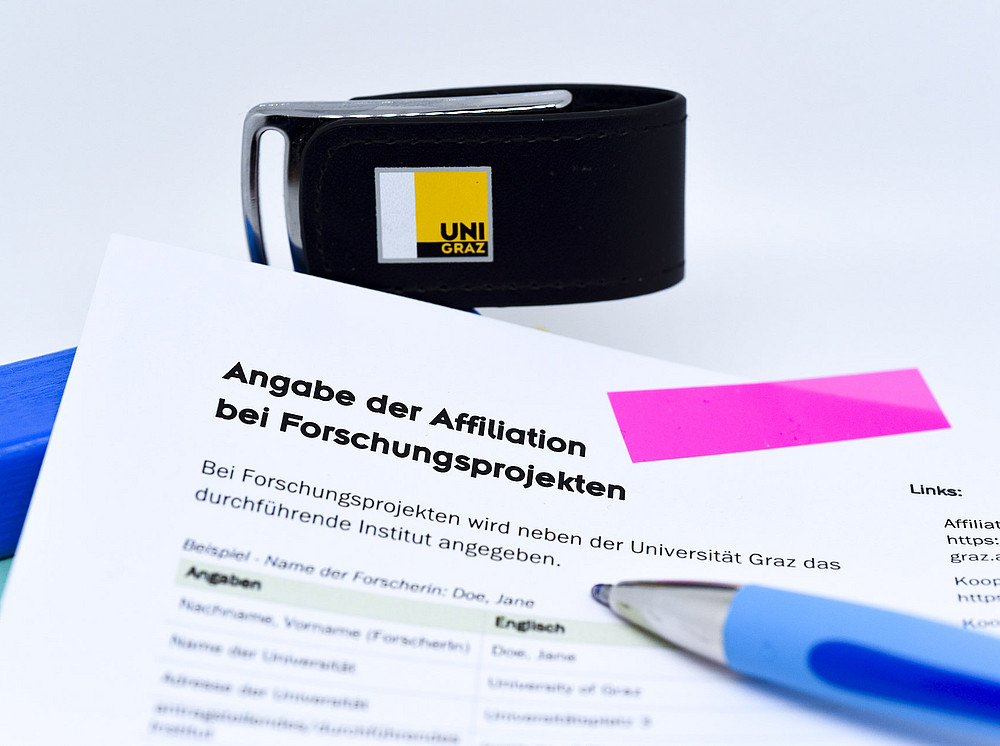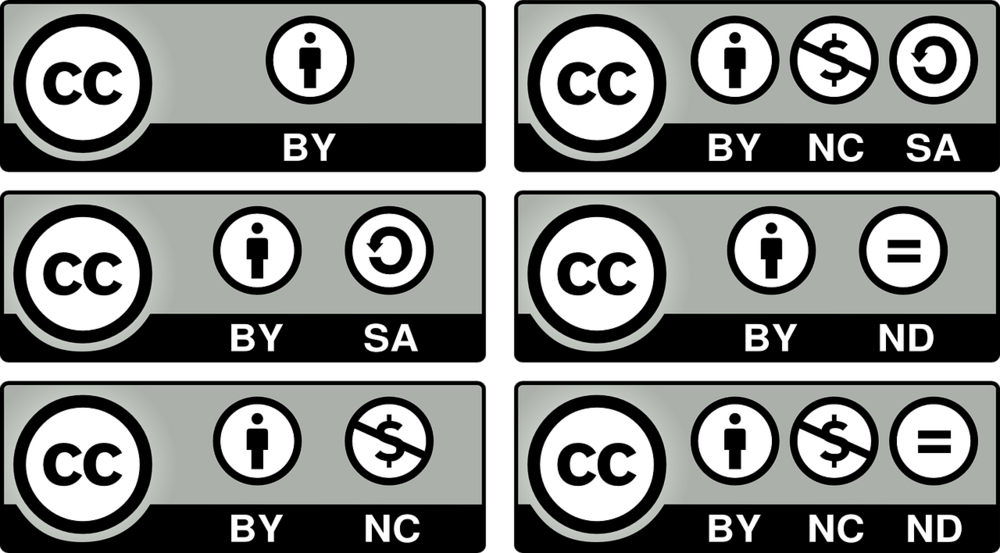During publishing
Correctly specifying your affiliation
Many databases automatically create an author profile for each publication they index. However, it is only possible to correctly attribute publications to authors and their institutions if the affiliation is correctly specified. The University of Graz has issued its own affiliation guidelines to facilitate automated recognition and attribution of publications.
Further information: Specifying your affiliation

Rights
As the author of a publication, you hold all the rights to your intellectual property. Publishing contracts often contain a clause that includes the transfer of all exploitation rights to the publisher. For specific legal concerns, contact the legal and administration department. Collection societies also provide information on the current legal situation and advise on individual questions. You can get a brief overview of Austrian copyright law and secondary exploitation law in our video tutorial "Urheberrecht & Zweitverwertungsrecht" (in German).
Further information:
-
Austrian copyright law (in German)
-
Information on publishing contracts and sample contracts (in German)
-
Information on collection societies (in German)

Creative Commons licenses
Creative Commons licences were developed as a way for authors to easily control how and to what extent their work can be used when it is published on the internet. With a free licence, authors grant users certain non-exclusive rights to use the work, such as editing or commercial or non-commercial use. Content under a free licence remains protected by copyright but may be used by third parties within the scope of the respective licence terms. You can find more information in our short video "CC-Lizenzen" (in German) and at creativecommons.org.

Persistent identifiers
Persistent identifiers for digital objects ensure that they can be found in the long term, even if the storage location changes. Digital Object Identifiers (DOIs) have established themselves as the standard for academic publications and research data, while Handle and Uniform Resolve Names (URN) offer technically equivalent solutions. Numerous platforms and publishers assign DOIs as standard for publications and datasets. Funding organisations also require them for the publication of project results. DOIs are also frequently used for bibliometric analyses (publication analyses, altmetrics, etc.).
